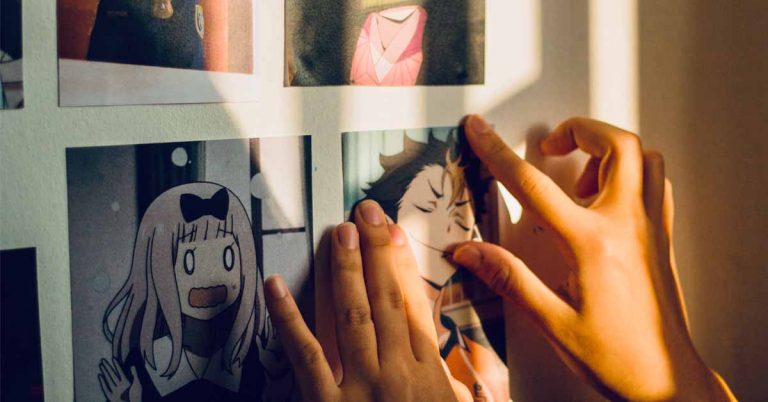Last Updated on December 27, 2022 by Dee
There are many different art styles and techniques to master as an artist. However, one of the biggest struggles artists face is finding their own unique style.
If you’re wondering how to find your art style this blog post will give you a thorough guide on how to start this process and come out on the other side with a better understanding of your own artistic identity.
While there is no correct answer on how to find your personal style, I have created a list of steps that you can take that will help you discover what makes you stand out from the crowd!
Table of Contents
- Building a Portfolio of Your Art Style
- Finding Your Art Style Through Life Experiences
- How to find your Artistic Voice as an Artist
- What is your art style?
- How Do You Find Your Art Style?
- Tips You Can Use to Find Your Style of Art
- Explore different materials.
- Draw every day.
- Make what makes you happy!
- Experiment
- Practice Different Techniques
- Accept Criticism and Feedback
- Go with what feels right
- Get constructive criticism
- Take a class
- Doodle
- Keep a sketchbook
- Let go of the pressure
- Be open to new ideas
- Don’t be afraid to make mistakes
- Remember you are not your art (but often it is part of you)
- Look for the Golden Thread in your Artwork
- Examples of Different Art Styles in Society
- Conclusion

Building a Portfolio of Your Art Style
It’s hard for any artist to make it in this world without having some sort of portfolio or body of work under their belt.
Whether they’re starting fresh with college courses or continuing their education after years in the workforce, most people struggle with where exactly they should focus their efforts when it comes to mastering certain subjects within art history or creative practice.
If you are one such person, you might find it helpful to start by focusing on what is the most interesting to you.
Sure, there’s no wrong way to go about learning how to find your style as an artist but you might find yourself gravitating towards oil painting techniques if your main interest lies within portraiture whereas you might find that watercolor meets your needs if the landscapes and nature scenes tend to call to you more.
If you find yourself constantly drawn to one subject over and over again, chances are it’s something you might find yourself wanting to explore even further as time goes by.
What is it that draws your eye? What is it about this particular artist or genre that speaks to you? What is it that makes you feel the most inspired about this particular subject matter?
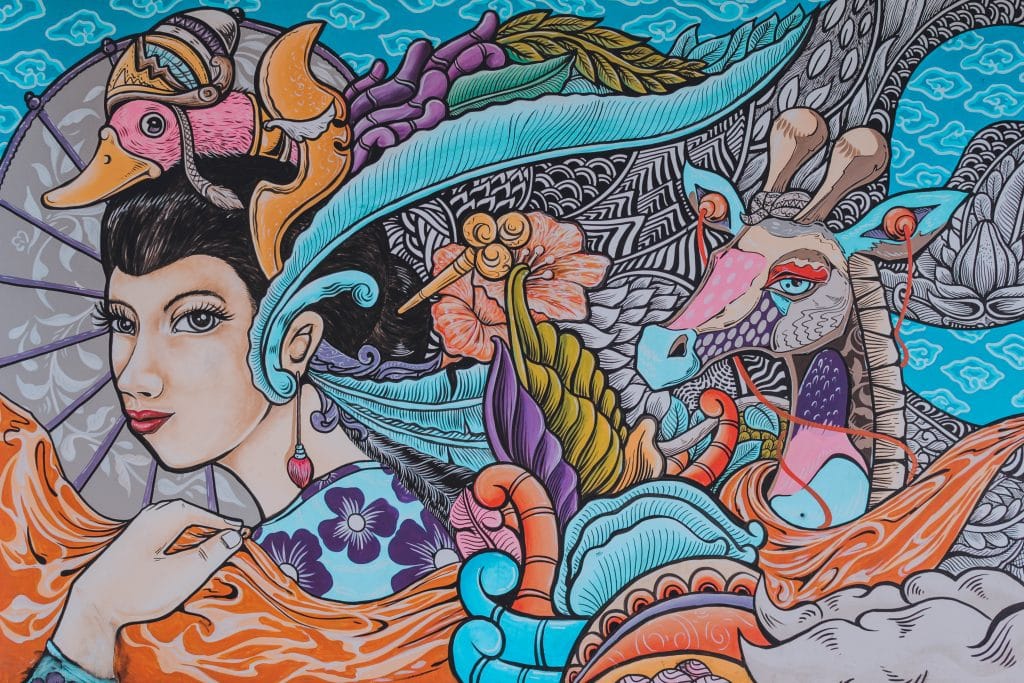
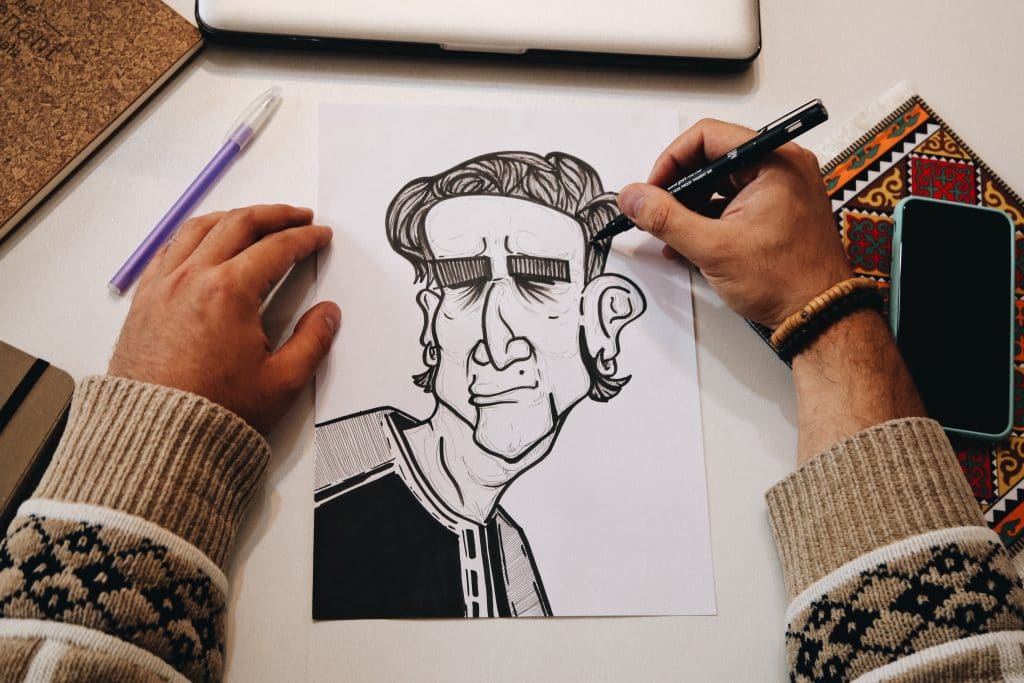
Working with a Mentor or Instructor
One of the biggest mistakes beginners make when trying to find their artistic voice is simply trying to find a style that they think will be popular or marketable.
While there is absolutely nothing wrong with this way of thinking, it can make your journey towards finding your art style a daunting and frustrating one.
The reason for this is because the vast majority of successful artists find their artistic voices by simply doing what comes naturally to them, regardless of how popular or unique their style is.
I find it helpful to work within an instructor’s parameters for a while so I can find my bearings and understand what types of materials should be used in certain situations.
What happens after the training wheels come off? If you find yourself being unable to find your art style no matter what you do, find yourself a mentor or instructor who can help guide you towards this goal.
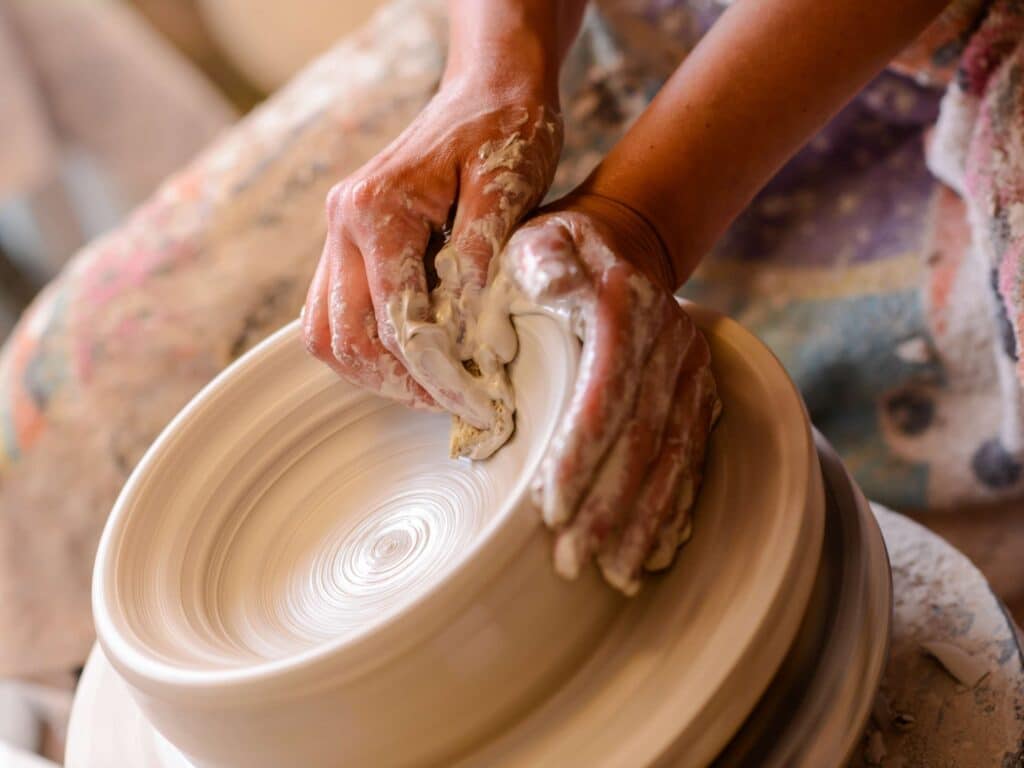
Finding Your Art Style Through Life Experiences
Whether it’s traveling to new places or spending time at home exploring your local surroundings, find ways to find your artistic voice through life experiences.
Make lists of all the things that inspire you and find creative outlets for them.
Do you find yourself constantly exploring new places? Why not find a niche of art history that interests you and focus your efforts on mastering this particular genre?
If it’s photography, find out all the best locations in your area and set up your camera to capture the most beautiful or interesting shots.
Maybe there’s a particular subject or artist who constantly inspires you. Find out which famous art museums house the majority of their works and find ways to see them in person.
While you might not find your art style overnight, working towards exploring one area thoroughly before moving on to the next can help you find those eclectic pieces that make up your personal artistic style.
[Looking for things to draw on your hand? 50 Easy drawing ideas.]
How to find your Artistic Voice as an Artist
If you find yourself constantly feeling stumped when it comes to finding your art style as an artist, try exploring other genres and mediums before settling down with your favorite subject or preferred art form.
Art doesn’t have to be limited to one particular style. Many artists experiment with different types of art and mediums in order to find their own unique style.
The key is not trying too hard and finding a method that works for you.
Keep practicing, and don’t get discouraged if your first pieces aren’t perfect! You’ll figure it out eventually!
Bob Ross was an artist who experimented with various styles before he found his own unique art form: happy trees!
He became so good at this one thing, people still watch him paint today on YouTube videos which are very popular among kids and adults alike.
Don’t worry about trying too hard when it comes to finding your artistic voice- just focus on having fun creating something beautiful out of nothing!
How To Find Your Artistic Voice as an Illustrator
If you find yourself toying around with the idea of becoming a freelance illustrator, find your own unique style and stick with it!
Many people find success as freelancers by sticking to one particular niche or subject matter.
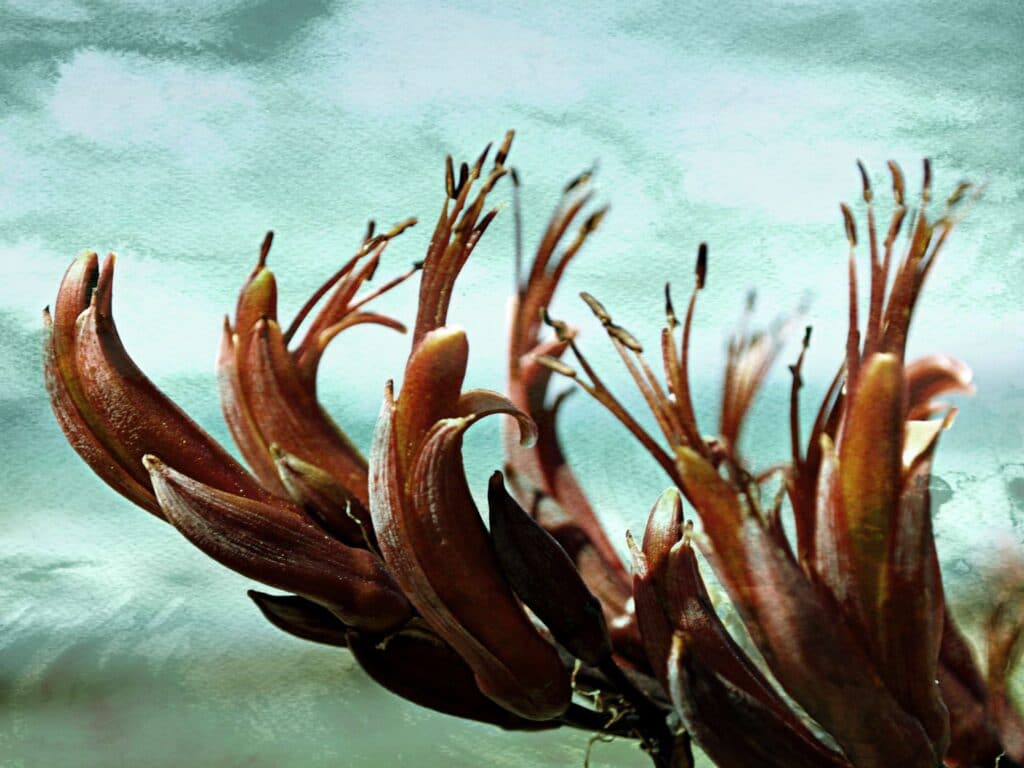
What is your art style?
Finding your art style can often feel as though you are chasing this elusive idea – especially when you are starting out with art-making.
Whether you are starting out drawing, painting, or creating another kind of art you may wonder about what your art style is …and how to find it.
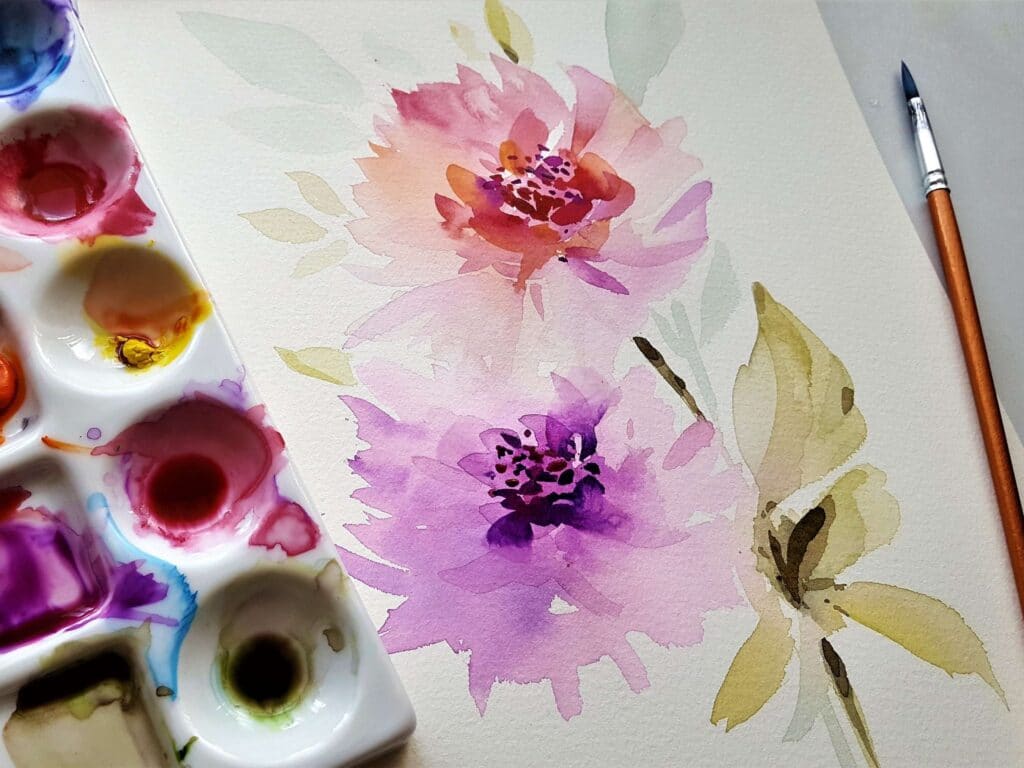
How Do You Find Your Art Style?
You have been exploring the world of art-making over the last while, and what you have noticed is that each artwork you create differs in style from the last.
It would seem that many established artists have developed their own special type of art-making.
Perhaps you find yourself wondering what your art style is?
What strikes you as an artist when you look at the work of other artists?
Typically, different artists will find themselves either attracted to or turned off by the works of others.
It may be that certain painters display a boldness in their use of color, while another painter’s work is more tonally subtle.
It could be that some artists find themselves drawn to the graphic lines and clean compositions of a particular artist they find.
Typically, it takes a seasoned eye to find the distinguishing factors in the artwork of others – this may be why critics find their jobs so fascinating.
Although this is frustrating, you are exactly where you are meant to be. Part of the process of finding your art style is trying out a range of different things to start with.
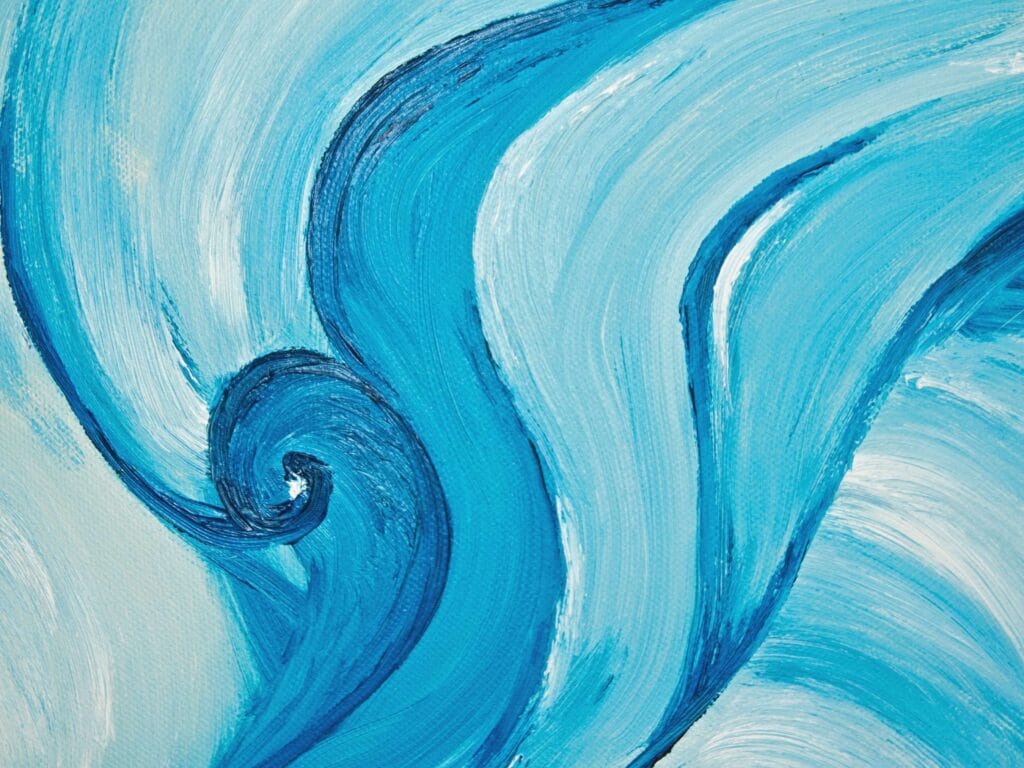
Your artistic style encompasses many elements.
Art style suggests the way in which you make marks on your paper or brush strokes in your paintings. It includes the colors you choose and the subject matter you go after.
Your style includes the medium you use and the feeling your art creates for the viewer. In a way, it’s a bit like your handwriting.
It is part of your identity, like your fingerprint. It is a part of your uniqueness, like the sound of your voice.
The development of an art style follows a similar path for most artists. You start off by making art, and you make more and more, and through time and experience, a similar thread, of sorts, develops in your artwork.
However, I know all too well that feeling that even though you have created so much art, you are unsure of what knits it together, what makes it yours. And so it is helpful to have some guidance to steer you on your artistic journey.

It is exciting to find your artistic voice.
When you find your art style, it’s like finding a best friend that really “gets” you.
You know when you are in the presence of someone who has “it”- they have an energy that is palpable and magnetic.
Wherever you find yourself, with an artist that has “it” – you find yourself left wanting more and inspired to find your own artistic voice.
When you find your style, it is exciting! You are excited by the possibilities this new artistic relationship brings.
And so finding your art style isn’t about finding perfection – but about finding a way that you find happiness in the art-making process.
Finding your art style is about finding a way to find joy in art-making, and finding yourself engaged by it.
“An artist’s style of art-making is mostly unconscious in its development. It is not something that is consciously planned and decided on. Yes, there are conscious decisions that take place, but mostly your artistic style develops from the unique creative energy inside you. This energy is steered and refined through the experiences you go through.”
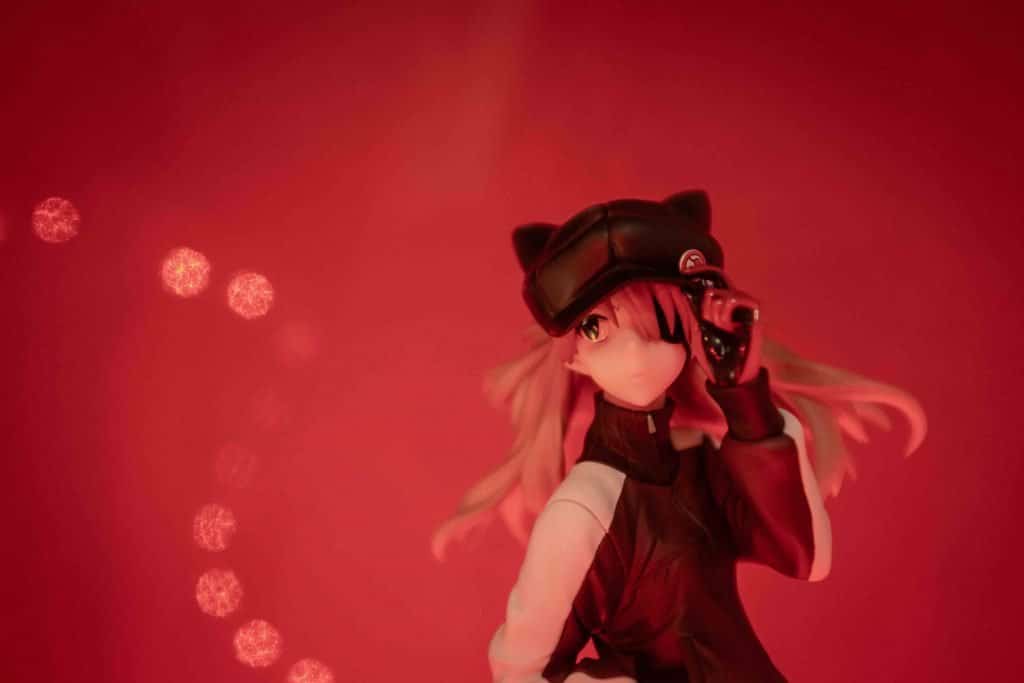
Tips You Can Use to Find Your Style of Art
Explore different materials.
Whether you are an oil painter, illustrator, sculptor, pencil drawer or mixed media maker find time to experiment with new materials that you might find challenging or interesting.
Some artists find that the more they work with different mediums the more their art starts to find its own style.
Examine other people’s art. I love to put myself in the mind of another artist and examine what motivates them to make art.
Go to galleries and art exhibitions (or online, if you can’t in person) and look closely at how the medium has been used and imagine the artist making the piece.
Read art magazines and books about artists and their art-making.
Explore art ideas and different techniques on social media.
Talk to other people about the art they make. Through doing this, you are essentially building up your understanding of how, why, and what other people include in their art-making process. It gives you your own “inner library” from which to reference your own art.
Most of all pay attention to what draws you in, what interests you, and keep a record of this.
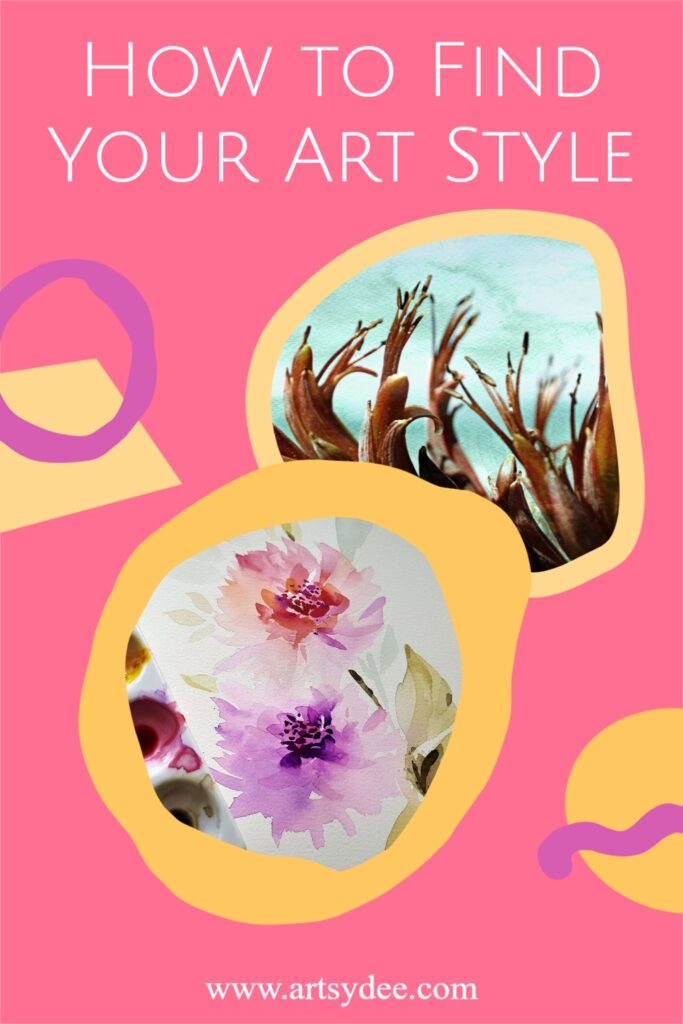
Draw every day.
It’s pretty simple, really. Just find a time in your day where you have 15-20 minutes to sit down and draw.
When you draw every day, you are more likely to find that there is continuity in the way that you approach drawing.
Drawing preserves skills – it keeps them fresh and alive instead of fossilized!
Drawing also keeps you in the habit of producing something on a daily basis. You find yourself motivated to find some time to practice your drawing skills, even if it’s only 5 minutes before work or after lunch.
It’s always better than nothing! And who knows what you might find if you do find that quiet time to draw.
Draw from life – become an observer of your world. Get out and find things in the world around you that catch your attention, and start drawing them.
The more you practice observational drawing – the better you will get at noticing things – and this skill is invaluable for any artist!
It doesn’t have to be a masterpiece. It can be a small sketch or a few scribbles.
But find time every day, even for just ten minutes where you do nothing but draw and explore your ideas.
It will help clarify your ideas about art-making.
Don’t compare yourself to others.
This is one of the most difficult things to do, but it’s also something that can propel you forward. It’s helpful to find some kind of balance between looking at other people’s art and creating your own art.
Make a list of things you find exciting in other people’s artwork and find ways to bring these elements into your own art-making process.
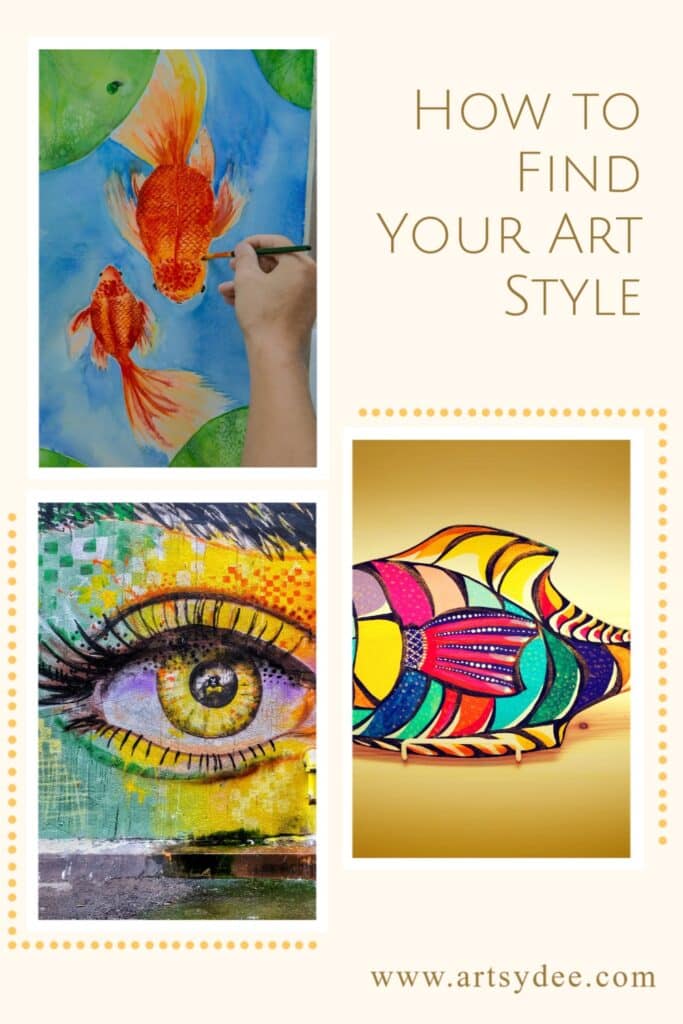
Make what makes you happy!
This is a little mantra I find myself saying on a daily basis. Make what makes you happy.
Explore your ideas and find joy in art-making.
If you find yourself miserable as you create your art, then there is probably something not quite right about it for you.
When you find out what elements of your art bring you joy, find ways to bring more of that into your art.
There is no right or wrong way to find your artistic identity – but there are things you should try out and find out what resonates with you the most.
This will be different for everyone, but hey, if you get lost along the way, come find me! I am happy to chat with you about finding your artistic identity.
I find that one of the best ways to find out what makes me excited about creating is talking to other people and asking questions..
In fact, I find that some of my most successful pieces have been those created from a question mark inside me asking about an issue or topic I am currently experiencing.
I find that some of the best art is created when you find a way to explore something that makes you curious or how it relates to you on a personal level.
Experiment
Be inspired by your exploration and experiment. Try new and unusual techniques and processes.
Staining with tea, pouring acrylic paint, drawing with smoke, and embroidering images are just a few examples of experimentation that may move you in a new and exciting direction.
Experiment a lot.
Artistic skills and development come from practice. Keep making art and make it often.
If you struggle with inspiration you could sign up for a monthly art challenge or get daily art prompts to complete in your sketchbook.
You can read up about Art Challenges for this year here in this blog post!
Practice Different Techniques
Explore different mediums and find your likes and dislikes.
Do you find that pencil drawings suit you? Or perhaps you find painting with watercolors relaxing?
Find what media feels the most comfortable to create with.
You may find that over time, like other artists, you stick with particular materials but it is ok for now to find out what works best for you.
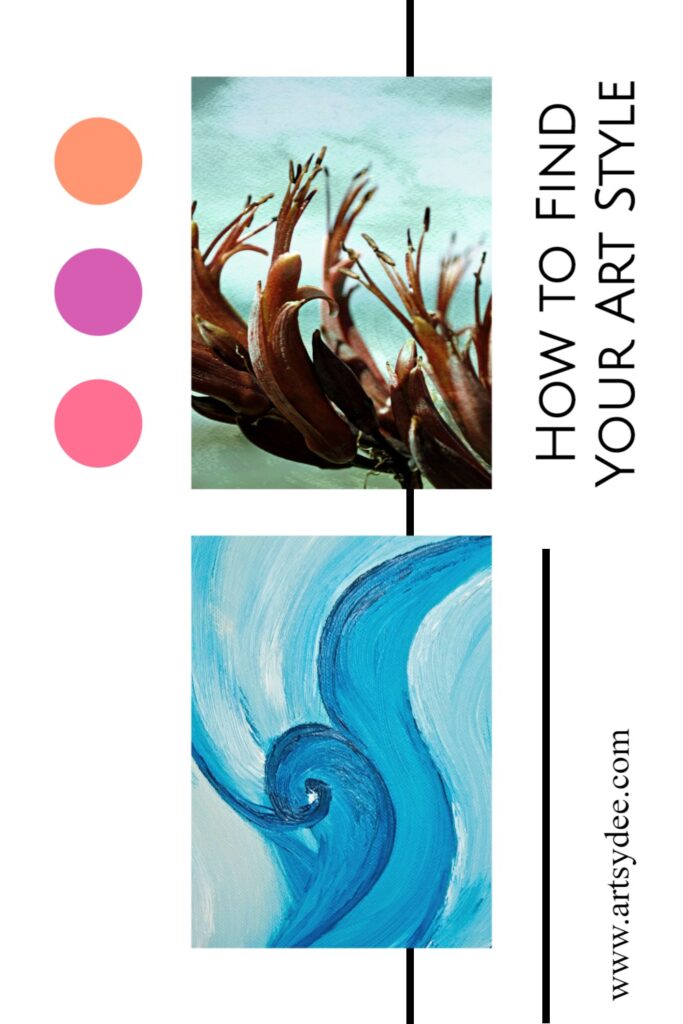
Accept Criticism and Feedback
It is important to understand that your art will be criticized at times, by teachers and other artists. This can be difficult but it may also help you find where you need to focus on in your work.
When others offer constructive criticism about your artwork, take this on board and think about what they say.
Don’t be offended; instead, try to find out what constructive criticism is—it’s important feedback that can help you find your art style.
Be Proud of Your Achievements
Find the beauty in yourself, find out who you are, and find your own art style. Accept where you are on your journey!
Go with what feels right
Your soul knows what you need from your art. Trust your intuition and don’t overthink things.
If you are moved towards a particular medium and subject matter – do it! And do it over, and over, and over again. This is really where the development of your style begins.
Get constructive criticism
Find someone you trust and ask them what they think of your artwork. Someone who you know will speak with heart and integrity. Definitely do not go to someone who will rip a hole (metaphorically) in your artwork.
You need someone who will be gentle in their guidance of what works and what doesn’t in your piece.
It is really a gift if you can find someone who can very gently steer you towards creating better art.
It is also a good idea to ask people whether they see a similar thread or style in your artwork.
Get them to describe it to you. This can help hone your idea of what your unique style is, and can push you in the right direction.
Take a class
This is also linked to exploration and experimentation. It is lovely to be part of a group where you can get advice and learn a particular system of art-making.
Even if you don’t continue with the techniques you learned about, you will always grow from this.
You will find the new information will be woven into your art journey and will pop up in the future.
Doodle
Doodle anything you find interesting. Doodle your thoughts, ideas, feelings and any random images that pop up in your head.
Allow yourself to doodle whatever moves you.
You find out a lot about who you are when you allow yourself to be curious and open with the process of doodling.
As an artist I find my doodles are a rich source of inspiration for future pieces of art, and a wonderful way to find out more about myself.
It’s all about you! It is about the process, the journey… find your own style and find yourself through art!
This is a great way to unwind and put pen to paper. Do this with no pressure or preconceived ideas. Let your thoughts run away with you and have fun making unstructured images.
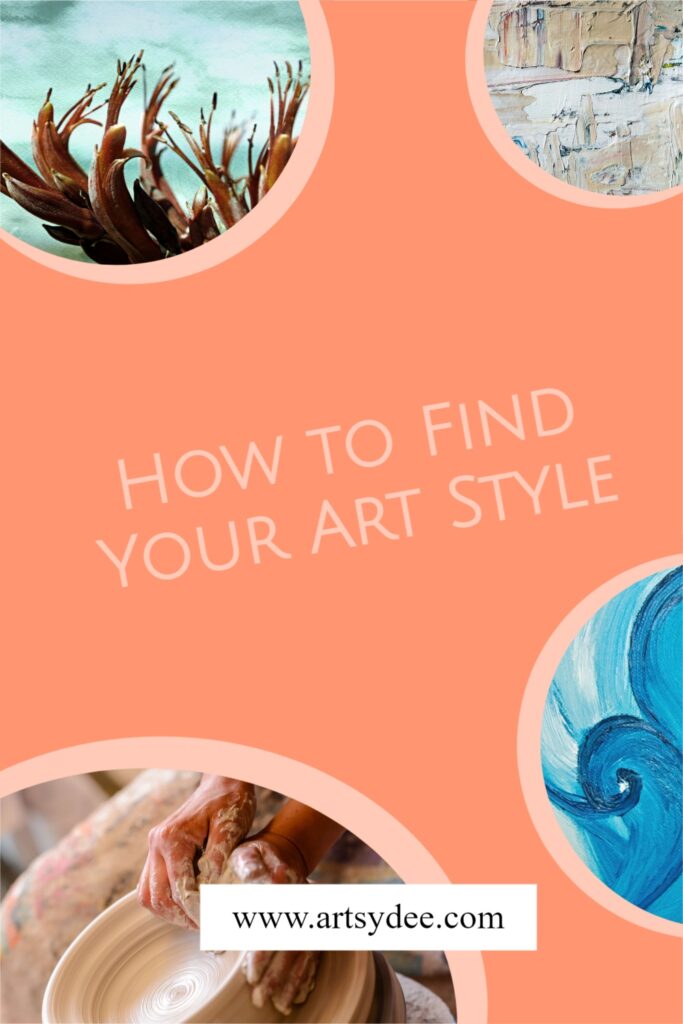
Keep a sketchbook
I really believe keeping a sketchbook or artist’s journal is a vital tool in one’s artistic journey.
You find out so much about yourself, your soul and find new ideas when you find the time to sit down with a sketchbook.
If you don’t know what to draw, find some inspiration in something that interests you.
It could be anything! And if it’s dark or scary it is ok; sometimes this is really exciting and other times it might make you feel uncomfortable.
You find out about yourself when you find out what inspires you. How do you feel after drawing something? Why did that subject creep up in your sketchbook?
Sketching is a great way to find out about yourself, explore different media, and discover techniques you can put into practice with your artwork
A journal helps you to record your drawings and ideas. You can go back and reflect on what you have created and how you created it.
You can keep track of experiments and very often get re-inspired to create something new.
With time a sketchbook gives you a wonderful overview of your art-making and slowly you will see your unique artistic style emerge.
Let go of the pressure
There is no right or wrong way to find your art style. The only thing that matters is what you enjoy creating and what makes you happy.
If it feels fun, exciting, and leads to something new – do not worry about whether it fits into a particular category or is connected with anything similar.
If your art style follows your heart, soul, and joy it doesn’t matter what category it falls into.
Just find out who you are through creating art. Go with the flow, find out what inspires you and find out what you love creating.
Allow yourself to experiment with no expectations or pressure.
Be open to new ideas
[Related Blog Post: Start an Art Challenge Today!]
Developing an artistic style does not mean being stuck in one particular technique or medium. You need to be open to change and flexible in your processes.
In fact, by being open to new ideas and techniques you are allowing your artistic style to grow and develop over time as the great masters did.
Picasso’s artwork developed into magical abstract paintings because he was open to new ways of looking at reality.
He was not afraid to find his own way of interpreting what he was seeing.
The beauty of the creative journey is that it unfolds as you walk your artistic path.
A mixture of exploring ideas, techniques, and materials – combined with lots of practice and repetition – will allow you to find your own unique style… and discover more about yourself!
Don’t be afraid to make mistakes
This is one of the most important things to remember when it comes to art-making. Mistakes are, most often, gifts that are given to us in order to help us grow.
They show us what not to do and also allow us to find our own unique style as we find the right way of doing things.
Recently I was doing a watercolor painting and dripped some paint onto my page accidentally. Although I was quite annoyed initially, I realized it actually created an area of interest in my artwork and it turned out to be a good thing.
You need to embrace mistakes, not be fearful of them. Use them to your advantage and allow them to flow into the next idea or artwork.
Remember you are not your art (but often it is part of you)
This is an important thing to remember when it comes to being creative. So often we find ourselves making comparisons between who we are and what we create.
I find it important not to take yourself too seriously; I find this often limits my creative process.
Don’t be afraid of art-making, don’t be afraid of your creations because they are only a part of you.
Don’t be afraid to find out who you are, what techniques and materials work for you… find your own style!
You find that you can find yourself through art, but this does not mean that who you are as a person will necessarily be reflected in your artwork.
An artist may have created some work that may seem very personal or emotional, however, this does not mean that all of their artwork is like this.
An artist may find a voice and find an unspoken language through creating art, but this can take time and practice – so don’t beat yourself up if the first thing you create isn’t very personal or doesn’t seem to express any emotion.
Look for the Golden Thread in your Artwork
Okay, this may sound a bit deep and slightly pretentious, but find the golden thread in your artwork.
The golden thread is a similar theme, similar elements, colors, shapes, or techniques used in each of your artworks.
You know this is the golden thread because you find it recurring throughout all of your art-making.
The golden thread may be technique or artistic form or material that you find yourself drawn to time after time.
For example, I find myself ink and watercolor with botanical themes in my artwork. Over time this has become one of the recurring themes I find myself exploring through many of my artworks.
You will find your own golden thread by being open to what you are drawn towards during your artistic process.
Give yourself some time… it may take years!
Art takes time, patience, lots of practice, and dedication.
This is probably the most important thing to remember when it comes to finding your own artistic style.
It takes time to find out what you are really interested in art-making about.
It takes time to find out what materials you find yourself attracted to.
It takes time to find your voice in art-making.
I find looking at the patterns in your artwork can be really helpful when it comes to defining an artistic style.
If the same elements and characteristics crop up in a wide range of your artwork – this is definitely something you should explore.
If there are similarities between your drawings and paintings find out why. What is it that makes you choose a particular pattern over another?
I find this exploration is an excellent way to find your own art style!
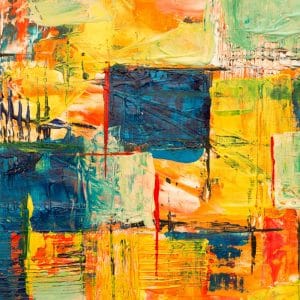
Examples of Different Art Styles in Society
In general society, there is a myriad of art styles to be found.
It is important to explore all the various styles out there and find ones that are appealing to you. Ask yourself why you find them interesting?
The next step is to find your own style, find what really interests you, and work from there.
Do some research into a few artists who particularly interest you and find out why their artwork interests you… find out what elements they find themselves including in their style.
I have listed just a few of the many different art styles you can have a look at and explore. It is a good idea to experiment with these and reflect on what calls out to you.
- Expressive lines
- Emotive color acrylic painting
- Geometric pattern drawing
- Cubism
- Surrealistic
- Realistic
- Organic sculptural
- Anime pencil drawing
- Abstract Style
- Classical Style
- Pop Art
- Realistic painting
- Abstract Art
- Pop Art Painting
- Expressive Style Drawing
- Organic Painting
[Related Article: How to Start Drawing]
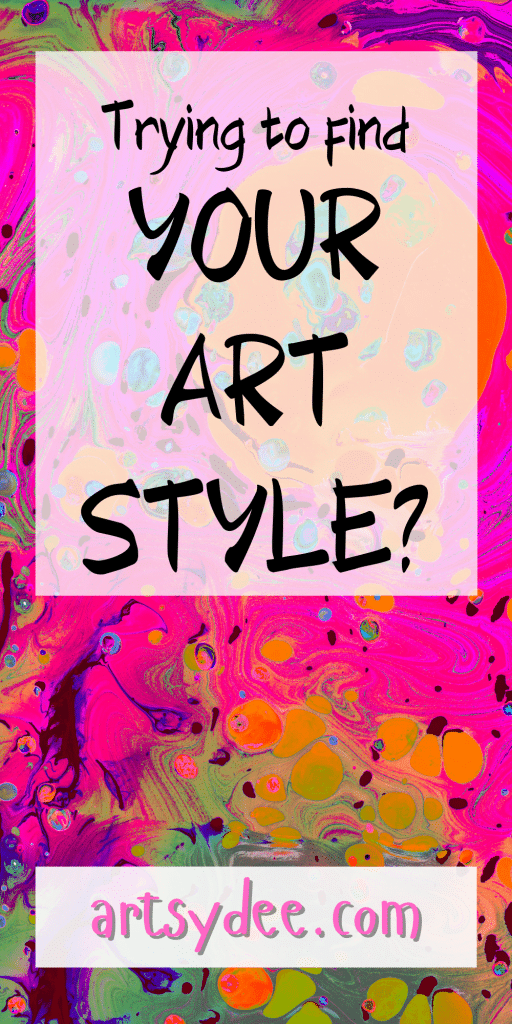
Conclusion
If you have been wondering how to find your art style it is important to remember that a person’s art style is something that evolves and changes over time. It is not something that is static.
In order to find your art style, take time to reflect on your art-making and your final pieces. And finally, as your unique art style begins to emerge, embrace new ideas and be courageous in your explorations.
Other posts you may enjoy…
How to Start Drawing
Can Digitally Painting Make Your Artwork Better?
Top Tips for Painting Beautiful Pen Ink and Watercolor Flowers
